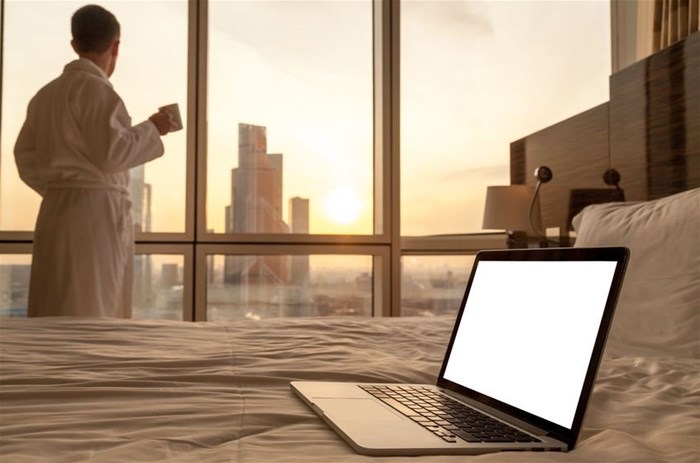
Top stories






More news


Marketing & Media
Ads are coming to AI. Does that really have to be such a bad thing?














According to Niels Verspui, country manager of RoomRaccoon South Africa, the pandemic has made technology a staple in people’s daily lives, as well as the way businesses are run across the globe. "This was no different in the local hospitality industry, with many hoteliers and guesthouses pivoting their operations to keep business afloat amongst the various lockdown regulations implemented to mitigate the spread of the virus."
Explaining the impact that Covid-19 had on local hotels, Alex Olivier, general manager of Emily Moon boutique hotel in Plettenberg Bay says that when the lockdown began at the end of March 2020, no one could have foreseen the dire consequences it would have on the hospitality industry. "Between 85% to 95% of our bookings before the pandemic were overseas travellers and overnight, those tourists just dried up."
He concedes that the lockdown has made business conditions extremely challenging. "We have done everything we can to remain profitable," Olivier says, including shutting the hotel on Mondays and Tuesdays to reduce expenses and using social media to market the hotel to honeymooning couples.
Other hoteliers agree that in order to survive, drastic changes needed to be made. "We’ve had to be very innovative," says Marius Vosloo, owner of the Nicol Hotel in Johannesburg. He says that prior to the lockdown, 60% to 70% of his guests were overseas tourists who needed an overnight stay near OR Tambo International Airport.
One of the ways Vosloo and others adapted was to use technology to adjust their pricing. "With the help of RoomRaccoon, we were able to experiment with our pricing in order to boost demand as it is able to automatically optimise rates according to room-sell probability.
As a result, Vosloo reduced his basic room rate by 20% per night. "We realised there was a demand from those who wanted to work away from home without distractions," he says. "All they wanted was a comfortable room with a fast internet speed, which we were able to give them for a competitive rate.”
After relying on third-party sites for his hotel bookings in the past, Vosloo was now faced with a challenge. "We wanted to avoid the 15% fee we pay these sites, but we didn’t have a direct marketing database," he admits. By using RoomRaccoon, the Nicol was able to offer a direct booking system to their guests, as well as discounts in the form of specials that were emailed to them. "This gave us to the opportunity to become much more focused on building relationships with our existing clients," he says.
Olivier agrees that forging good relationships is key in these uncertain times. "Many hotels used the pandemic as an excuse to cut down on quality, but we did not,” he says. “We want to make our guests feel relaxed and at home, so that they keep coming back. To ensure this happened, the RoomRaccoon team worked with us to develop a strategy to navigate the various lockdown restrictions including website updates and various packages," says Olivier.
However, a crucial part of communication for hotels is also internal, Olivier asserts, mentioning how easy it is for every member of staff to have access to data thanks to technology. "Through our hotel management software, anyone in the hotel from the housekeeper to the hotel manager is able to see who’s booking in or out that day and what our current occupancy rate is," he says.
Olivier believes technology has helped their hotel stay in business: "I could be hiking up in the mountains and field a call from a guest. In a matter of minutes, I’m able to tell them which rooms are available on which dates and make a booking. Having accessible data like this at our fingertips has really changed the way we work."
Looking ahead to the future, both Vosloo and Olivier are cautiously optimistic, expecting numbers to pick up over Christmas and into 2022. The fact that South Africa has been removed from the UK’s Red List of unsafe countries has already had a huge impact. "It was the single biggest thing stopping travellers from coming to South Africa," comments Olivier, who says most of their international guests come from the UK, Germany and the Netherlands.
He’s expecting a good Christmas thanks to domestic tourists who flock to Plett and more international arrivals from the end of January. “If things continue to improve, we hope to have occupancy back at 40% again from next year,” he says.
Vosloo believes a recovery in hospitality will happen, albeit slowly. "As long as we remain on Level 1," he says, "the outlook should continue to improve and hopefully international tourists will feel confident enough to return in the next three months."